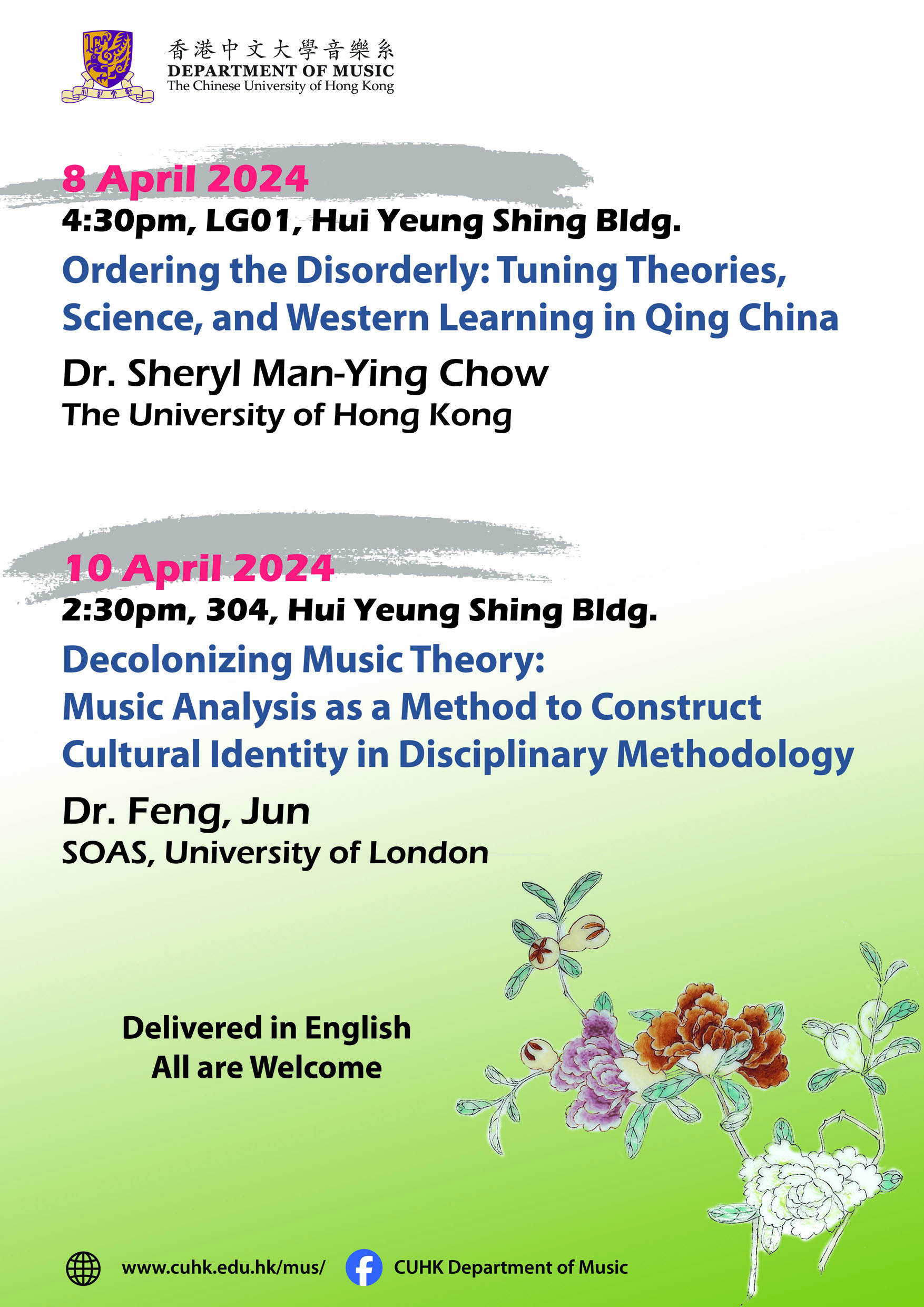Title: Decolonizing Music Theory: Music Analysis as a Method to Construct Cultural Identity in Disciplinary Methodology
Time: 2:30 – 4:00 pm
Venue: 304, Hui Yeung Shing Building
Delivered in English, all are welcome
Synopsis:
It has become increasingly noticeable that music theory teaching has long been dominated by Western Art Music theory, and this is not limited to Western classrooms. As a result of reforms in music education in China since the 1920s, the teaching and practice of Chinese music were shaped within a Western framework with the newly established conservatoire-type training (Stock 1996: 143-144). In recent years, academic dialogues about decolonization in music studies have been widely developed. Potential defects in the music curriculum, existing methods for music analysis, and unequal relationships between researchers and fieldwork consultants, are reflected and discussed. In 2020, Ewell authored six blog posts centered on “Music Theory’s White Racial Frame” and emphasized the significance of incorporating music theories from non-Western cultural traditions to achieve greater equality in music theory (source: https://musictheoryswhiteracialframe.wordpress.com/2020/05/01/new-music-theory/, accessed 31 March 2024.). This prompts many higher education institutions and active scholars to contemplate diversifying and decolonizing music theory in both teaching and research.
After 40 years’ development of Ethnomusicology in China since the 1980s, methods of music analysis evolved from Chinese Traditional Music Theory (Zhongguo chuantong yinyue lilun) as well as the fundamental idea of studying “music in or as culture” (Merriam 1964) developed from US-led Ethnomusicology have formed the two directions for researching music in China. Scholars (Yang 2020; Witzleben 1997) have examined the split between these two approaches in ethnomusicological research by Chinese scholars. Yang (2020) highlights both the disciplinary limitations of Ethnomusicology in researching Chinese music and the potential defects of Chinese Traditional Music Theory, in that it may neglect the perspectives of insiders and the cultural context when analyzing music. Methods in Ethnomusicology can help to understand how people perceive musical creativity in different ways while a thorough understanding of its rooted traditional music theory is also necessary.
In this talk, I will use my own research on variations in Chinese suona music as an example to illustrate the strengths and limitations of the two preferred ways of music analysis in ethnomusicological practice in China. I draw attention to the importance of the methods of music analysis in Chinese Traditional Music Theory and emphasize that it is the necessary pathway to identify the musical significance of Chinese traditional music. At the same time, I argue that decolonizing music theory is not only about adopting non-Western music theories in teaching and research but also requires the deconstruction of theoretical doctrines and consideration of how historical music theory is understood by local musicians and practiced in musical creativity. By adopting China’s disciplinary tradition in the research on Chinese music, it can thus help establish a global dialogue and further construct cultural identity in disciplinary methodology.
